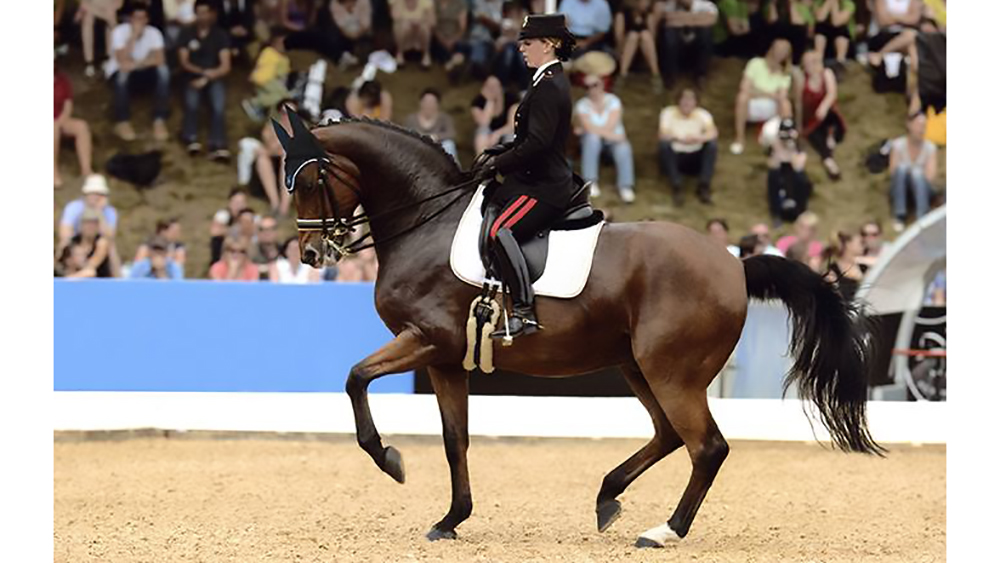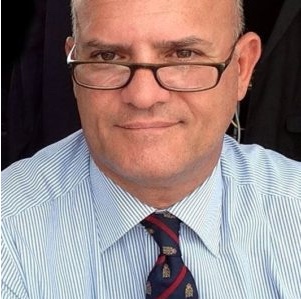
Valentina Truppa means dressage; yes, of course. But there is something in the overflowing curriculum of the Italian champion (two Olympic games, among others…) that is independent of the discipline and “cuts” across dressage and show jumping: Valentina Truppa is the only woman among the Italian riders in the three Olympic disciplines who has made it onto the podium of a World Cup final (i.e. dressage and show jumping, given that there is no World Cup for three day event). In fact, she placed third in 2020 at ‘S-Hertogenbosch (Holland) riding of Eremo del Castegno, behind Adelinde Cornelissen on Parzival and Helen Langehanenberg on Damon Hill… but above all ahead of the queen of world dressage, Isabell Werth (fourth place on El Santo).
Upon completing the epic period of competition with her top class horses Chablis and Eremo del Castegno, Valentina Truppa began a phase of reconstruction of her fleet of top horses. This meant remaining away from high-level international sports for a certain period, just as happens for other and more recognized champions in any discipline. Considered carefully, this is the beauty of our sport: “constructing” new companions for competition is one of the most fascinating, stimulating, and ultimately gratifying activities for whomever can call themself a horsewoman or horseman, even before being a rider. As in the case of Valentina Truppa.
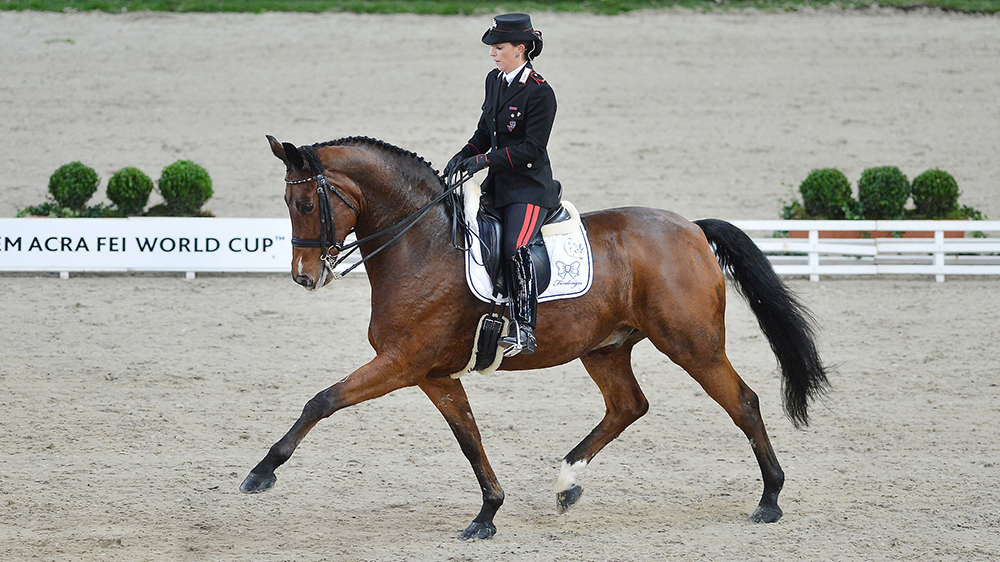
«Let’s say that the third part of my career is now starting, after the youth period in juniors and as a young rider, and the initial seniors period with Chablis and Eremo. Now I have two horses who I think will be at top level in this third part: Zeus, who is 9 years old, and Smile di Fonteabeti, who is 10».
What level of preparation have they reached to this point?
«I think that both will make their debut in Gran Prix this year, one earlier and one later (in the meantime Smile debuted in Grand Prix in a national competition) … They will certainly be my companions for sports adventures for the next five or six years».
Has not being a protagonist recently in international competitions at the highest level been a hardship for you? Or is it something you consider essentially to be normal?
«It is certainly not a hardship. We always work on young horses, but it is an activity that takes time. If we add that we lived through two difficult years between Covid and rhinopneumonitis… well, there was an additional slowdown of competitive programs».
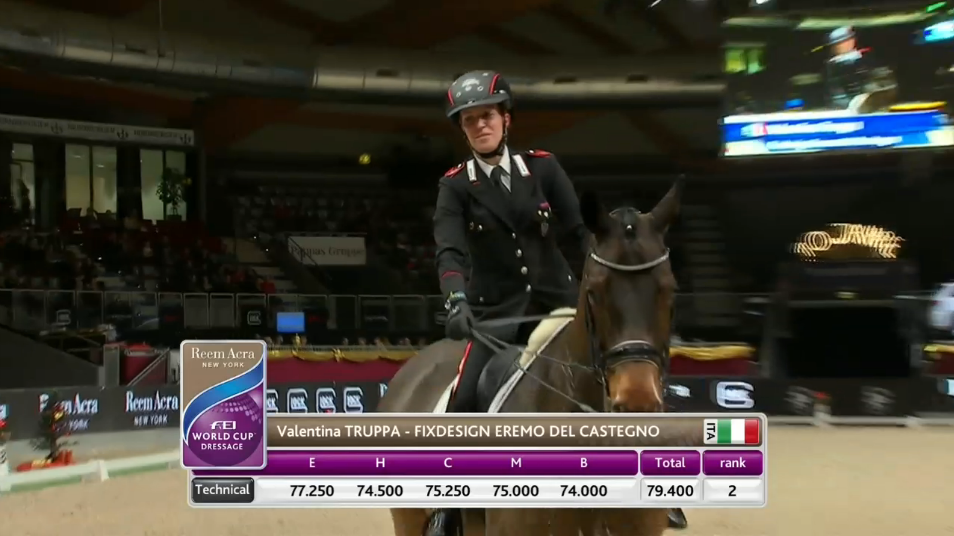
A moment of transition…
«Exactly, a transition, a shift from one phase to another. We also need to consider that when Chablis and Eremo were at the end of their careers, Zeus and Smile were beginning the competition classes for 4 and 5-year horses, so they were already present».
Bringing a horse to a high level after riding it from when it was very young must be a great satisfaction…
«Absolutely. We do not buy adult horses, that are already trained. And even if we had the possibility to spend that money, well… we wouldn’t do it anyway. Let’s say that between Chablis/Eremo and Zeus/Smile there have been other horses, but as we know well not every horse training you work on makes it to the Gran Prix level. I brought some along in the training and then I realized that they didn’t have the talent to make it that far; or however to reach the level I needed, so they were entrusted to others or sold. This is one of the reasons I had a little generational gap, but without significant concrete effects, considering the two years lost to the pandemic».
Apart from all of this, is the competitive dimension of your sport something that gratifies you… something you need, something you are seeking?
«Yes, I am one who suffers greatly from staying at home too much. As my father always says, I give my best during competition rather than at home. I feel being an athlete, I like competition, I like testing myself, I like competing even against myself, comparing the level of my performance and my results. When I ride at home… well, I don’t want to say that I rest on my laurels, that’s not true… but when I’m at home, what I do not get today I do tomorrow… when in competition, on the other hand, things have to come at that precise time».
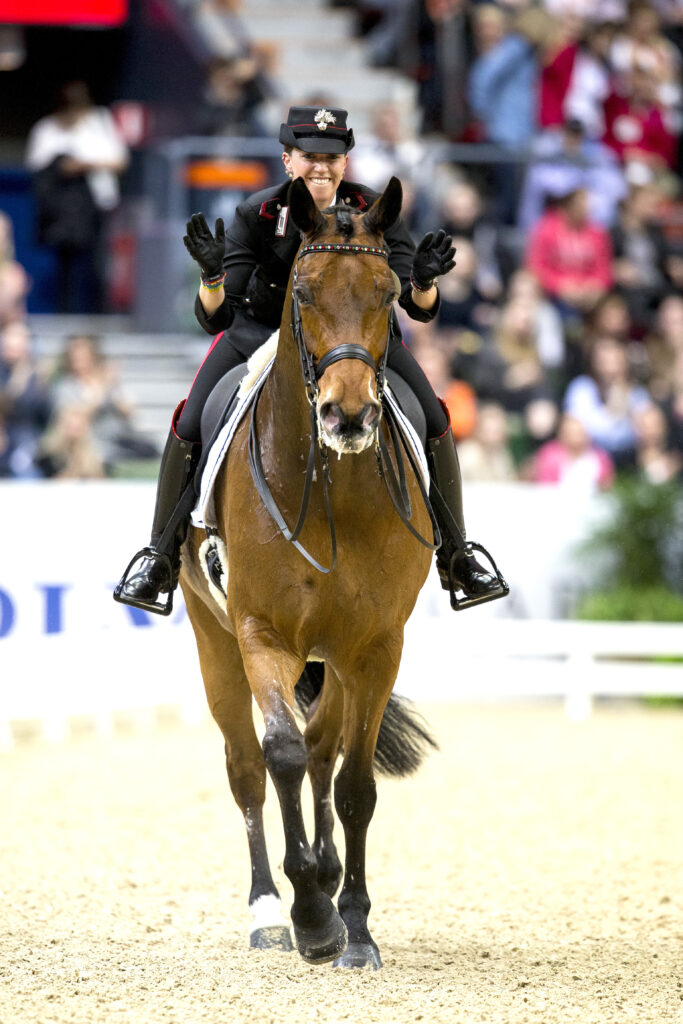
So you like competitions…
«Yes, a lot. Competition per se, independent of whether it is the World Cup or a little show near home… Because even the little competition near home helps prepare you to go to the World Cup; so you must face it with the same commitment, concentration and dedication that are produced in a big show».
By now you have accumulated considerable experience from both a rider standpoint and in terms of existence in general in the world of horses and sport: when you look back, what do you see in the life of Valentina Truppa? How do you assess the time you have lived until today?
«I consider myself one of the few riders who have had the good fortune and ability to do things early that others will never do in their whole life. This is thanks to the people who supported me and accompanied me, like my father, my family, the corps of the Carabinieri, and my sponsors. I won medals as a junior and young rider, I took part in two Olympics, I won third place in the finals of the World Cup, I took part in a World Championship and I can’t remember how many European Championships, not to mention international competitions… and I’m 36 years old, not 60, so if we consider that I started all of this when I was 15, I have to admit that in twenty years I have done quite a bit. I hope to do just as much in the future, obviously…»
Among all of these experiences, which has been the most important and significant for you?
«As a life experience, the two Olympics, certainly. Just being there is a fabulous achievement. Of course, winning a medal would be even better, but if you consider that only the 60 best riders-horse combinations in the whole world participate in the Games, well… I have been there twice, and that means a lot for me. From a rider and technical standpoint, on the other hand, I can’t really choose one competition over another. Fortunately I have ridden many, many horses, and with each of them there has been one competition that meant more than others, even regardless of the result achieved. Maybe the KUR of the World Dressage Master in 2012 in Munich (CLICK HERE TO WATCH), because the (German) public applauded in the middle of the class three times, and I got several 10s in the piaffè».
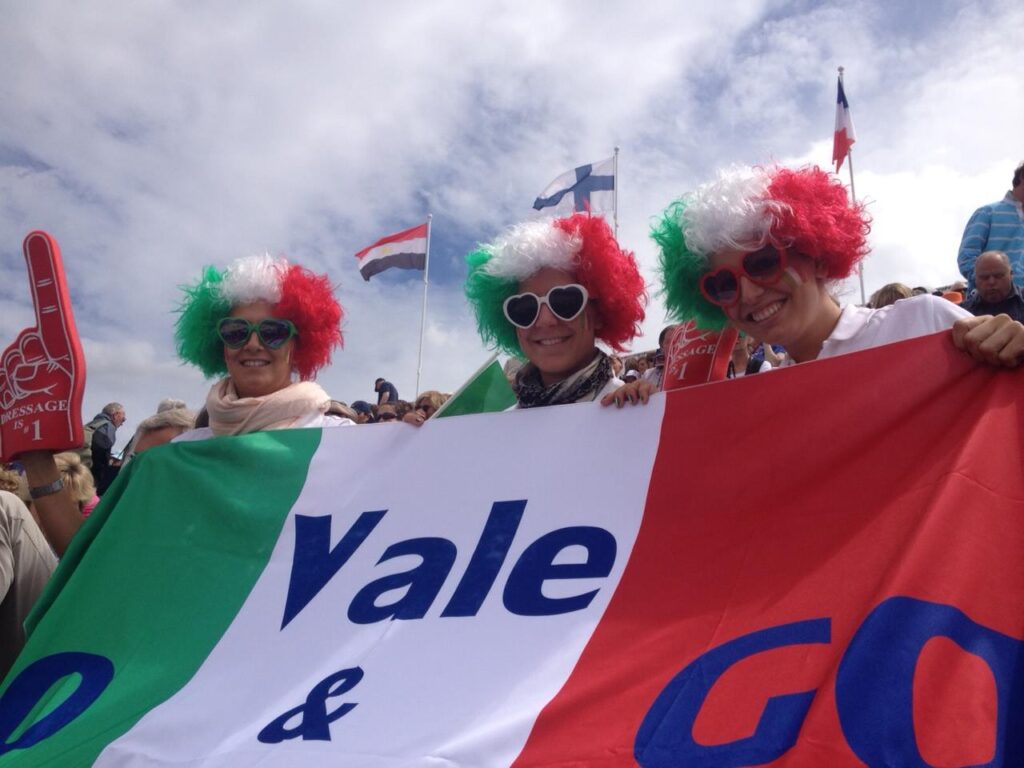
Does something exist in your career that if it had not happened, would have changed the course of events?
«I would say the first medal in the juniors European Championship with Don Rico in 2004. That’s where it all started, it was the event that defined me in an international context, and also my first year as a Carabiniere».
With regard to events: in June 2015 you were the victim of a very serious accident, which fortunately you overcame. What has remained with you from that terrible period?
«I don’t remember anything, and I thank heaven for that. I remember before and after, but nothing of what happened. I’m lucky, I must say, because once everything was better I was able to get back in the saddle as if nothing had happened. It was not easy, though. It took a long time but in the end everything worked out well and I went back to exactly how I was before. That said, I am also convinced of this: a person who does a sport like ours, or like skiing or automobile racing, has to be prepared for the fact that sooner or later an accident can happen. You can be as careful as you want, have a helmet on like I did, and everything; but in the end it can happen. If you want to avoid injuries, then maybe it’s better to play something like chess».
Speaking of the beginning and development of your career, we have to talk about the role played by your father Vincenzo.
«Yes, of course… he is the person who put me in the saddle and got me into this world. So he was fundamental for me».

But today you are an adult woman with your own independence from all points of view. So has something changed in the relationship with your father compared to the recent past?
«We need to start from an indisputable assumption: his role is that of a trainer and judge, and I am the student. My father’s experience is of course broader and deeper than mine, even just because of age. But unlike when I was 15 and then 18 and then 20, now our relationship is based on discussion about what he sees and feels from the ground and what I see and feel in the saddle. It is an interaction of experiences: my father’s as a judge and trainer and technical expert, and mine maybe a bit more than him as a rider. My father recognizes that I have done more as a rider than he has, proportionately, so now we are able to make a large contribution to the discussion on any subject, based on each of our skills and experience. This is how we work now».
It must be nice to have a relationship like that…
«Wonderful. Also because compared to ten years ago, I have a lot more freedom to make decisions regarding timeframes, the method of working with horses, and the type of commitment».
On this point: how is the activity of your horse facility organized today?
«The number of students is currently much lower than a few years ago, when we had a lot; some stopped, some sold their horses, some decided to concentrate on being mothers… But this is also due to our decisions; we would no longer have the time physically to teach them all because now I dedicate myself also to teaching far from home. I do some internships, I have started to work for the FISE, I give exams to trainers, I am in charge for FISE in the pony sector for two years, and my father is often abroad to work as a judge. Let’s say that from a work standpoint I have also entered the third part of my life! Fortunately Micol Rustignoli is always with me, who in addition to riding her horse also takes care of my young horses».
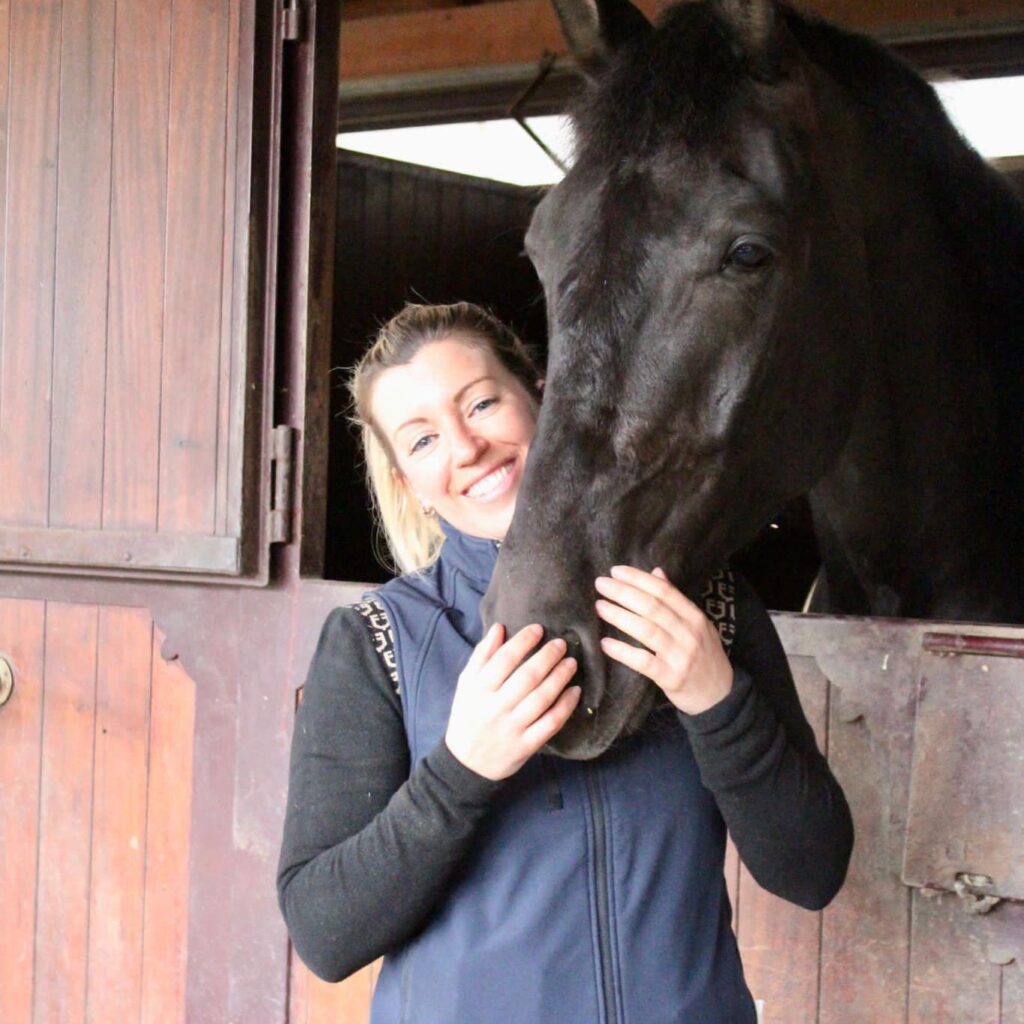
Do you like to teach? What is your relationship with teaching?
«I like making available to others what I have learned over the years thanks to my Dad and my personal experiences. I would like for someone else to be able to follow the same path. We’re speaking of youth, of course, because my age group goes from 12 to 16, and in any event never above 18».
Is the dynamic of teaching rewarding? Do you feel that you succeed transmitting what you have inside of you as a rider?
«Generally speaking I would say yes. Then when giving seminar you find yourself in front of ten people there is no guarantee that all ten will be able to work the way you want, but just the fact that they come to thank you after having discovered some new exercise, or because they felt the horse a bit better than usual, or have heard the same thing the regular trainer says but with words that are different or more understandable… in short, if there is even just one thing I can tell these kids that can help them understand and improve, that is already a good way for me to be gratified».
So in the future do you see yourself more as a teacher or a rider?
«I would say that in the span of the next ten years I would like to combine the two activities, considering also the age of my current horses as well as some colts that are in trainig. I’ll be honest: I don’t think I’ll insist on riding beyond a certain age, I think that at a certain point I’ll leave room for youth, making my skills and personal experience available to them. But I would say that I would like to do one or two more Olympics, let’s put it that way!».
We were talking about your family earlier: your mother Anna and your brother Gabriele are not involved in horse-riding the way you and your father are. Is this something that creates an imbalance?
«No, absolutely not. My brother loves animals in general, and he knows very well that what used to be just a sport for me has become a job. My mother lived through this situation with my father in the past, so she has always been perfectly prepared!».
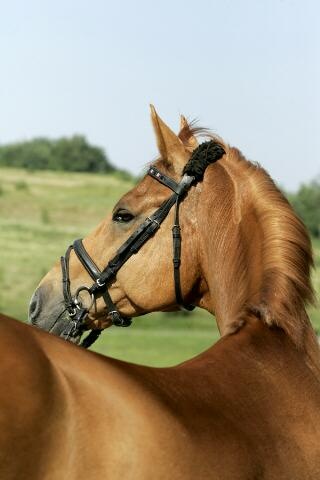
Let’s keep talking about affection, but now regarding horses. Which horse is your favorite today?
«It’s still Chablis, despite the fact that my first result in the past came first with Don Rico and I did the most important things in seniors with Eremo del Castegno. But Chablis has always been with me: he was there when I was a junior, and when I became senior. He is always here with me. I think that when he leaves me it will be traumatic…»
Speaking of relationships with horses: today one of the most discussed and popular issues in public opinion is so-called wellness…
«Over all of these years I have learned something fundamental, thanks to the teachings of my father and thanks to my personal experience: the way we behave with horses always comes back to us. If we behave well and properly with them, they give all the good back to us. And the opposite is true as well: if we use improper attitudes, if we force things, well… we have seen scenes of resistances and conflict even with important riders. We need to be able to recognize the horse in front of us, and make an effort to understand each single horse. I have had horses like Eremo who at 9 was already trained to go to the Gran Prix, and others like Ranieri who made it to the Gran Prix at 13… and still others who never made it to the Gran Prix at all. We need to be able to understand, and to wait. We need to have respect for nature and the uniqueness of each horse».
Which if think about it, is the beauty of our sport …
«Yes, because we must never forget a fundamental point: horses are doing us a favor when they do a piaffé or passage, or whatever they do in each discipline… If it were for them, they’d be in a nice meadow grazing on grass. We always have to start from this idea, and thus many things would get better».




